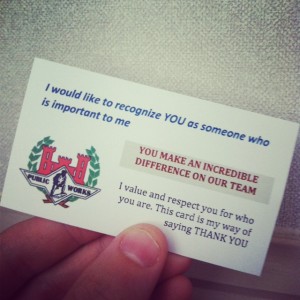I’m a hard worker.
I’m detail-oriented.
I like structure.
I enjoy workplace camaraderie that facilitates completing objectives.
I think outside the box, carton, compost bin—whatever.
But not when I work my ass off for over two years and all I receive is mass-produced, business card-sized appreciation; when I have to deal with a volley of hostile interactions with bigoted coworkers; when my supervisor spends more time avoiding problems than acknowledging them; when aggressive, self-aggrandizing, incompetent coworkers do everything in their power to undermine my professional character; when my Grey Goose consumption increases to numb the pain of another work day and blunt the bitterness of returning tomorrow.
So, I swallow the horse pill of a job with as much grace as I can, and go on.
But then, right as I cajole myself to stay, a coworker sprinkles salt over the open, festering wound.
Every.
Single.
Time.
That’s when I snap out of my early morning dream. And clench my jaw, and brush the phantom bead of blood off my argyle sweater as the imbecile orders, then backtracks, then re-orders, then adds another muffin to his re-ordered order.
And then there’s a mental void between sipping my coffee and sitting in my office chair, boring holes into the clock until it’s time to leave. All the while wondering why I’m nearly 30, have two degrees, and am considered a “research participant” and not an “employee”; why the entity for which I “participate” doesn’t acknowledge or care about its participants or how they’re treated by their host facility; why I’m not afforded any benefits, and have to pay quarterly taxes; why I’m still barely making ends meet.
Usually, at this vulnerable point, some succubus drains the last bit of wherewithal I possess. My temper flares. I morph into an uglier version of myself. And become an intolerable, horrible beast swaddled in sarcastic, cynical, macabre verbal vestments.
I stop caring. Bureaucracy wins. And I assume my cog-like position in a grand juggernaut.
I let my passions collect in an isolated, cold compartment within my heart—a scrap heap I accrue through apathy, until it’s easier to let it rust than salvage the leavings.

